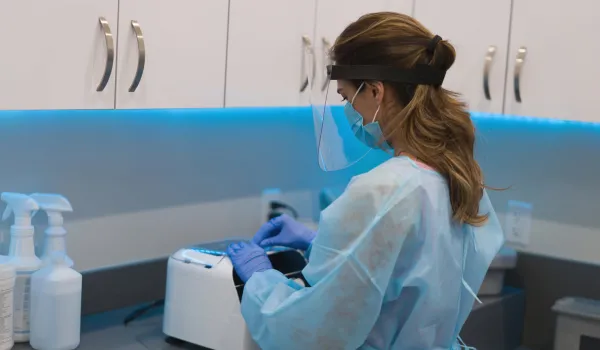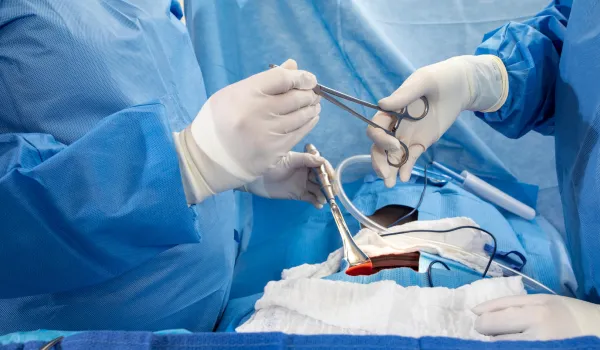Concorde Staff

It's often difficult enough just getting a job interview, especially when interviewing in a competitive health care career. When you get one, you certainly want to put your best foot forward. There's a lot at stake to the start of your career and your livelihood.
What do you do? How do you wow a prospective health care career employer into hiring you?
What are the things that can put you over the top in an all-important job interview?
Donnell Adair, Graduate Employment Specialist at Concordes campus in Portland, Ore., has some tips to help you. Hint: It all comes down to preparation.
Practice
Adair said he's seen countless times where people approach a health care career job interview with the attitude, "I got this." That's not all bad, but you also must put in the work beforehand doing everything possible to make sure you "got this."
"Look up the potential type of interview that could take place," Adair said. "That way, you don't fret when you walk into a seven-person panel interview. Research the potential questions you might be asked. This is so important to giving great, detailed, eloquent answers. Why wait to be put on the spot during an interview? Don't take that chance. Do the research now to limit that risk of not being prepared."
Research
A company's mission statement can give you a great idea of what it is all about, Adair said. It helps in forming an idea of how you see yourself fitting in the organization.
"There's nothing worse than an employer asking, "Why do you want to work for this company?" and you not being able to give a clear answer," he said. "If you don't see yourself in the company, a hiring manager won't either."
However, Adair cautions not to believe you know everything about a health care career company just because you've done some research. Don't go into an interview acting as though you do.
Appearance
In a time where we often overlook the formalities of professional dress, it is absolutely important in making a good impression for your health care career interview, Adair said. Many of us are afraid to overdress when it's usually the opposite and most people underdress.
"There's nothing wrong with a tie or a suit jacket," Adair said. "Just make sure you are clean, neat and modest with colors, accessories, make-up, clothing, fragrances, and jewelry. You want the main focus to be on you and your ability to fill the position, not what you did or didn't wear."
The way you carry yourself can also have a big impact, according to Reina Resnik, Senior Graduate Employment Specialist at Concordes campus in Miramar, Fla. Watch your posture. Don't fidget. Make appropriate eye contact.
"Shake hands with a firm, but easy grip; an interview is neither an arm wrestling competition nor a cotillion," Resnik said. "Make sure to listen carefully and to answer the questions asked by the interviewer. Try to find ways to naturally work in your best selling points during the conversation."
Confidence
Everything mentioned previously will all be for naught if you lack confidence, Adair said. You could give perfect answers and prove that you've done your research on the company, and it will not be impactful without the confidence to back it up.
For our current Concorde students, you have dedicated months in preparation for performing well in your new career field. You have real-world experience to assure you. You also have the support of the Graduate Employment Department, dedicated to your successful employment and with you through every step of the process.
"We can help," Adair said. "Give us a call or stop by and see us. For those not yet in the process of your training or have not decided to come to Concorde yet, know that the Graduate Employment office works with you while you are in school and while you are in your employment search seeking your first opportunity in your new field. It is a lifetime service offered to you as an alumnus of Concorde."

Take The Next Step Towards a Brighter Future
We have a Concorde representative ready to talk about what matters most to you. Get answers about start dates, curriculum, financial aid, scholarships and more!



